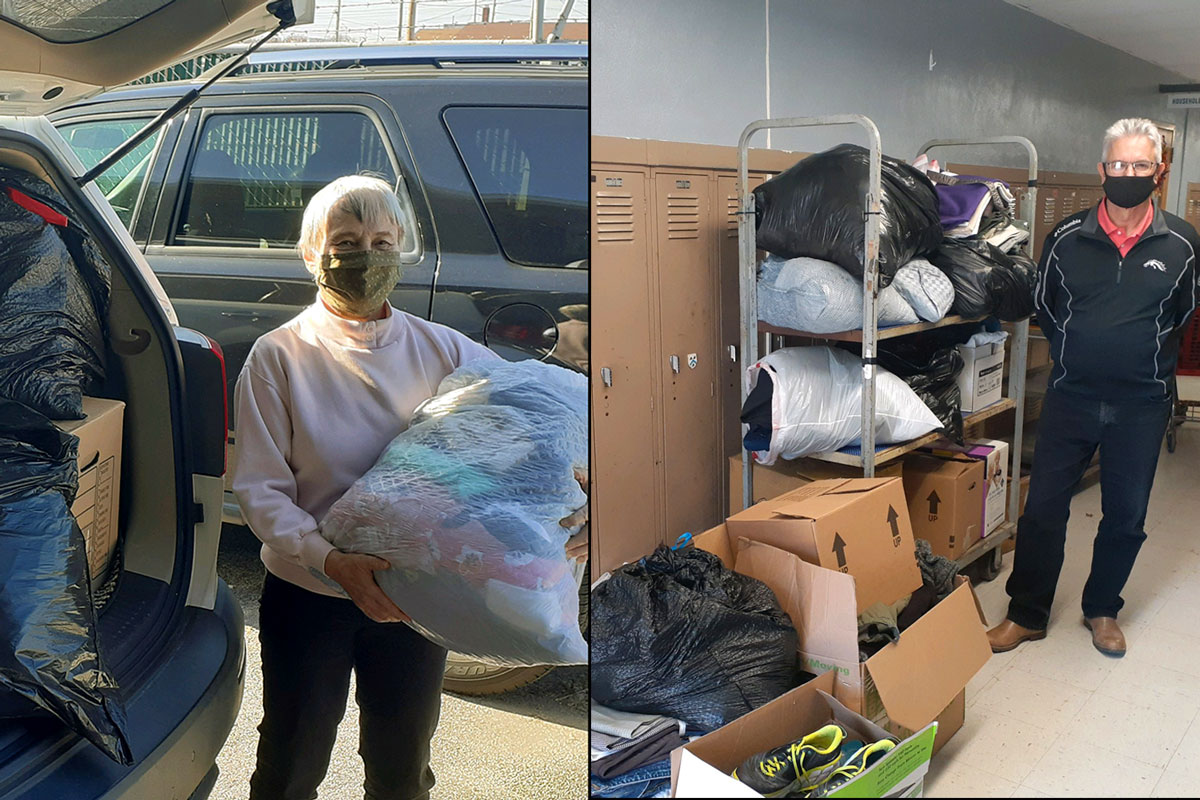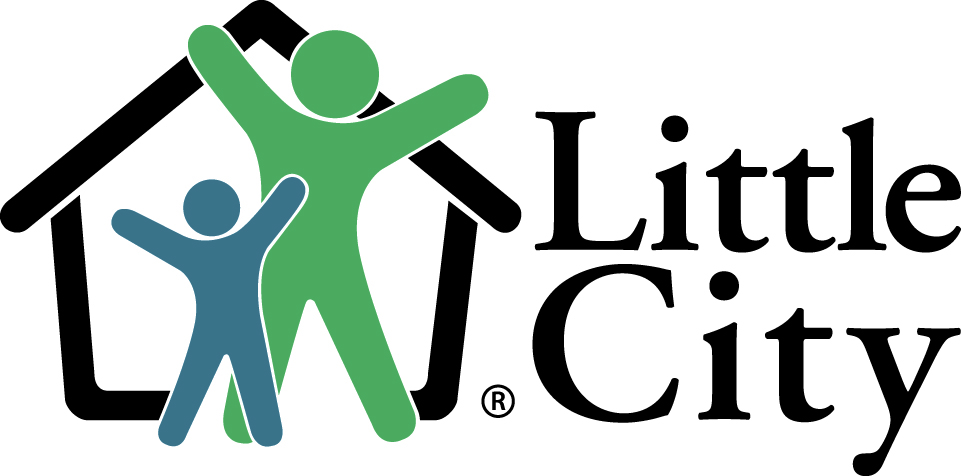- Details
- Category: Senator Rachelle Crowe News
 MARYVILLE- Two Metro East nonprofit organizations are freshly stocked with coats and other winter clothing items, thanks to donation efforts by community members and State Senator Rachelle Crowe (D-Glen Carbon).
MARYVILLE- Two Metro East nonprofit organizations are freshly stocked with coats and other winter clothing items, thanks to donation efforts by community members and State Senator Rachelle Crowe (D-Glen Carbon).
“Thanks to donations from several generous residents, our neighbors will be able to stay warm this winter,” Crowe said. “We have split the donations between Operation Blessing in Wood River and Community Hope Center in Cottage Hills. The clothing drive could not have been a success without the support from members of the Metro East community.”
PICTURED: (Left) Executive Director of Operation Blessing- Karen Wilson
(Right) Executive Director of Community Hope Center- Paul Militzer
- Details
- Category: Senator Laura Ellman News
 NAPERVILLE – State Senator Laura Ellman (D-Naperville) is congratulating the DuPage Children's Museum and the Naperville Heritage Society for receiving nearly $1 million in combined grants to improve their facilities and develop new exhibits.
NAPERVILLE – State Senator Laura Ellman (D-Naperville) is congratulating the DuPage Children's Museum and the Naperville Heritage Society for receiving nearly $1 million in combined grants to improve their facilities and develop new exhibits.
“Part of being an Illinoisan is understanding where our history began and where it’s going and as Illinoisan we’re always looking toward the future,” Ellman said. “Both of these organization are reaching out to people where they are creating a framework on how to move forward. They’re recognizing the needs of the community and are creatively meeting those needs while also moving us forward.”
The Illinois Public Museum Capital Grants Program, administered by the Illinois Department of Natural Resources through the state’s multi-year capital program, is open to any museum operated by local government or located on municipally-owned land. The maximum grant award for the projects announced Wednesday was $750,000 and matching funds are required in many cases based on museum attendance levels.
“The Children’s Museum and the Heritage Society attract thousands of visitors each year,” Ellman said. “This program is investing in the 21st district, which in return creates new economic growth in our community.”
More information on the Illinois Public Museum Capital Grants Program is available on the IDNR website at https://www2.illinois.gov/dnr/grants/Pages/Museum-Capital-Grants.aspx.
- Details
- Category: Senator Patrick Joyce News
 PARK FOREST – While Thanksgiving celebrations may be smaller this year, State Senator Patrick Joyce (D-Essex) joins the Illinois State Fire Marshal’s Office in sharing tips to ensure families stay safe in the kitchen.
PARK FOREST – While Thanksgiving celebrations may be smaller this year, State Senator Patrick Joyce (D-Essex) joins the Illinois State Fire Marshal’s Office in sharing tips to ensure families stay safe in the kitchen.
“With many families changing their plans and staying home this Thanksgiving, they could be preparing this traditional meal for the first time,” Joyce said. “It’s important for families to take precautions to avoid fire hazards while cooking to prevent an accident.”
- Details
- Category: Senator Don Harmon News
 OAK PARK, Ill. – Senate President Don Harmon (D-Oak Park) announced Pleasant Home in Oak Park will receive a $421,500 grant for its geothermal project.
OAK PARK, Ill. – Senate President Don Harmon (D-Oak Park) announced Pleasant Home in Oak Park will receive a $421,500 grant for its geothermal project.
“Pleasant Home is a beautiful piece of living history in our community and a shining example of the stunning architectural landmarks in Oak Park,” Harmon said. “Investments in our cultural institutions will help preserve these gems for years to come.”
Pleasant Home will use the funds to install a geothermal system that will provide much-needed air conditioning to the 123-year-old National Historic Landmark.
Read more: Harmon announces capital grant for Oak Park museum
- Details
- Category: Senator Scott Bennett News
 CHAMPAIGN – The Pavilion Behavioral Health System in Champaign will receive $200,000 in Residential Capital Improvement Grants to serve more at-risk youth, State Senator Scott Bennett (D-Champaign) announced Friday.
CHAMPAIGN – The Pavilion Behavioral Health System in Champaign will receive $200,000 in Residential Capital Improvement Grants to serve more at-risk youth, State Senator Scott Bennett (D-Champaign) announced Friday.
“When a child – especially a child in the care of DCFS – needs medical help, they should never have to wait,” Bennett said. “I’m happy DCFS is making this investment in the Pavilion Behavioral Health System to help it expand its mission.”
Through the Residential Capital Improvement Grants, administered by the Illinois Department of Children and Family Services, six residential and group home service providers across the state will receive a combined $866,000 to increase their bed capacity and improve physical facilities to support medically complex youth and youth with severe mental health issues.
In recent years, the state has lost more than 500 residential beds. The grant program is meant to help fill this gap and reduce wait times.
The Pavilion Behavioral Health System will receive $200,000 for a four-bed expansion to serve adolescent males and females.
- Details
- Category: Senator Robert Peters News
 CHICAGO – With the enrollment period for the Affordable Care Act marketplace open now until Dec. 15, State Senator Robert Peters (D-Chicago) is encouraging Illinois residents to apply and stressing the importance of health insurance during these unprecedented times.
CHICAGO – With the enrollment period for the Affordable Care Act marketplace open now until Dec. 15, State Senator Robert Peters (D-Chicago) is encouraging Illinois residents to apply and stressing the importance of health insurance during these unprecedented times.Read more: Peters: ACA open enrollment more important now than ever
- Details
- Category: Senator Ann Gillespie News
 ARLINGTON HEIGHTS – State Senator Ann Gillespie (D-Arlington Heights) announced today that Little City, a group home provider for individuals with intellectual or developmental disabilities, will receive part of a $866,000 Capital Improvement Grant.
ARLINGTON HEIGHTS – State Senator Ann Gillespie (D-Arlington Heights) announced today that Little City, a group home provider for individuals with intellectual or developmental disabilities, will receive part of a $866,000 Capital Improvement Grant.
“This investment will bolster the vital support network the residents at Little City rely on,” Gillespie said. “Funding these programs will help Little City residents on a path toward independence and strengthen our community.”
Read more: Group home provider Little City awarded housing grant
- Details
- Category: Senator Scott Bennett News
 SPRINGFIELD – In recognition of the World Day for the Prevention of Child Abuse on Nov. 19, State Senators Scott Bennett (D-Champaign) and Rachelle Crowe (D-Glen Carbon) are applauding efforts by communities and child protection services professionals around the world who work to prevent child abuse and neglect.
SPRINGFIELD – In recognition of the World Day for the Prevention of Child Abuse on Nov. 19, State Senators Scott Bennett (D-Champaign) and Rachelle Crowe (D-Glen Carbon) are applauding efforts by communities and child protection services professionals around the world who work to prevent child abuse and neglect.
“On this day, we celebrate the important role communities play in protecting children from abuse,” Bennett said. “It’s a reminder that it is our everyday task to put forth our efforts toward strengthening families and preventing abuse and neglect so that our children have a safe place to grow.”
Read more: Senators Bennett, Crowe recognize World Day for Prevention of Child Abuse
More Articles …
Page 592 of 765













 © 2026 Illinois Senate Democratic Caucus
© 2026 Illinois Senate Democratic Caucus